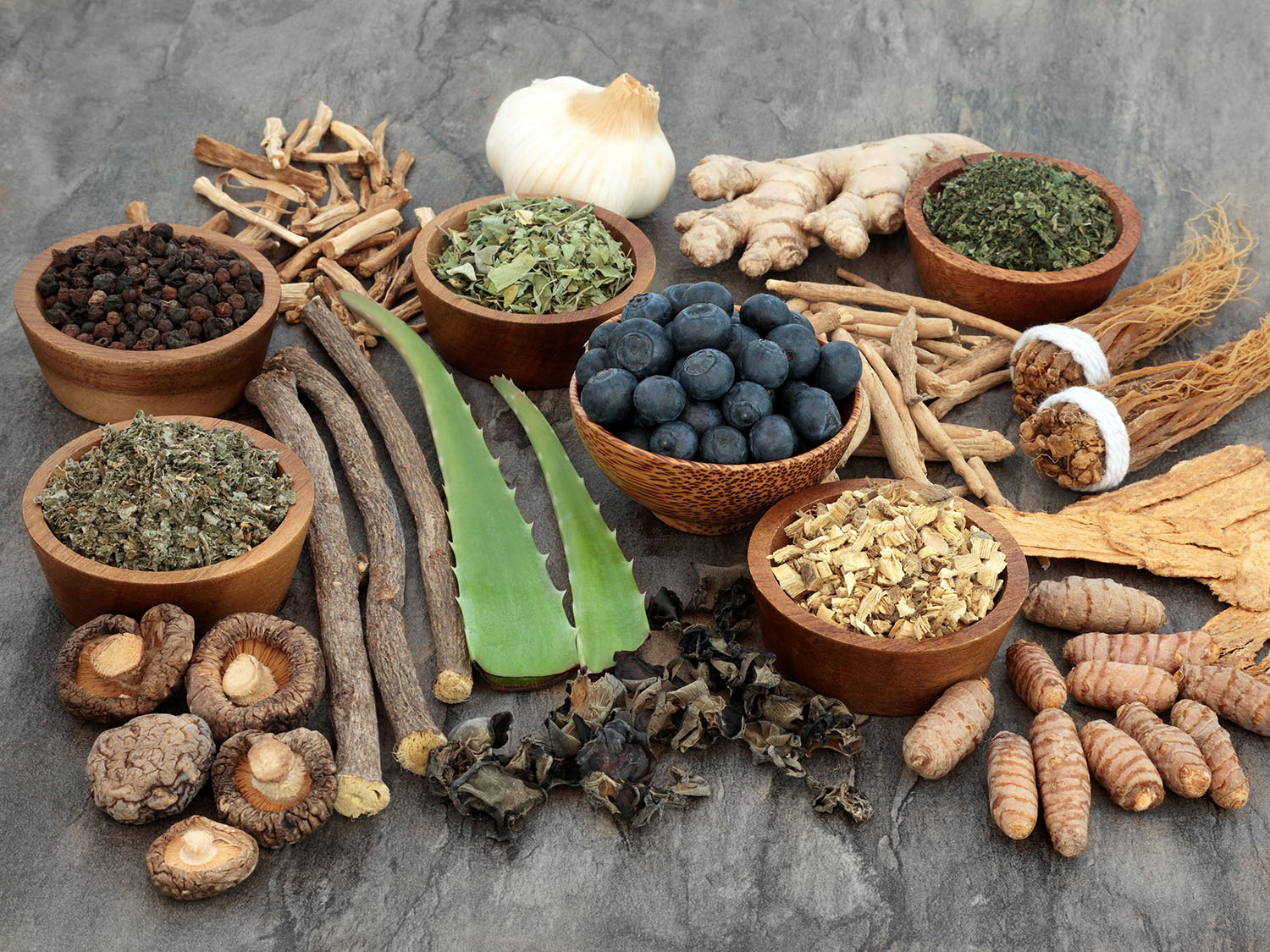What in the World are Adaptogens?
Adaptogens are “non-toxic plants that are marketed as helping the body resist stressors of all kinds, whether physical, chemical or biological.” They can be herbs, berries, or other plants that have been shown to have exceptional health-promoting characteristics.
In essence, adaptogens are meant to bring imbalances in the body, caused by stress and other external factors, back to a middle ground. By supporting the adrenal glands, adaptogens promote balance in the body.
How do they work?
According to Dr. Brenda Powell of the Center for Integrative and Lifestyle Medicine at the Cleveland Clinic’s Wellness Institute, adaptogenic plants work by “interacting with the hypothalamic-pituitary-adrenal (HPA) axis and the sympathoadrenal system, both of which are involved in the body’s response to stress.” Such interactions may influence the production of hormones, purportedly altering everything from general energy levels to mental clarity and fatigue reduction.
What are their health benefits?
Although most of the research published on adaptogens thus far is inconclusive and has predominantly been published in small journals, their potential remains hopeful. According to traditional Ayurvedic medicine and other forms of traditional Asian medicine, adaptogens are said to help with everything from sexual dysfunction, mental fatigue, to digestive ailments. Furthermore, anecdotal reports show that different adaptogens (especially combinations of several) may improve symptoms of stress and PMS, ease anxiety, improve sleep, and boost overall brain function via increased concentration.
How to consume them?
Adaptogens can be taken in a variety of forms. While some companies promote the use of daily capsules, these aren’t always closely regulated and may include unnecessary additives. There is a wide variety of pre-mixed powders that can be added to your morning latte for a tasty, salubrious elixir or an extra healthy salad dressing! Other options include adding tinctures to water or drinking soothing adaptogen teas.
How you consume an adaptogen may largely depend upon which one you have.
Some, like holy basil, can be eaten as part of a meal, and some are consumed as supplements or brewed into teas. Since many adaptogens function uniquely in the body, determining your individual needs will help when deciding which is most beneficial. Some of the most common adaptogens and their observed benefits are as follows:
Some of the most well-known adaptogens include:
- Ashwagandha: A medicinal plant used in traditional Ayurveda medicine, Ashwagandha is said to reduce chronic stress and promote stable energy levels.
- Eleuthero: A traditional Chinese medicinal herb, Eleuthero may boost immunity and support overall sexual health.
- Holy Basil: Another stress-reducing herb, Holy Basil is used for managing chronic stress by supporting the body’s natural response mechanisms.
- Maca: As a potent adaptogen, maca is said to improve hormonal imbalances, increase physical stamina, and improve sexual function.
- Rhodiola: Also known as Rhodiola Rosea, this is one of the better-studied adaptogens. It is extremely popular in Eastern European and Asian medicine, Rhodiola has been studied for its potential in decreasing the cortisol stress response. It might also fight off fatigue and improve overall mental performance. Overall, this seems to be one of the most promising adaptogens for promoting regularity of energy and focus.
- Panax Ginseng: Commonly referred to as Asian ginseng, Panax Ginseng is used to reduce long term stress and anxiety (while reducing the hormone imbalances that this might create).
- Siberian Ginseng: Eleutherococcus Senticosus, or more simply, Siberian Ginseng may improve chronic fatigue by supporting adrenal health.
- Schisandra: This adaptogen is said to promote liver and gastrointestinal health. This berry may also improve mental performance and physical endurance.
Where can I get them?
Adaptogens have become increasingly available as knowledge of their potential usage becomes more widespread. They can be found in many health stores as well as online. They are relatively expensive, often costing upwards of $50 for only a 1-2 month supply.
A Word of Caution.
As with all supplements, you should talk to your doctor before consuming adaptogens. Herbal supplements are often underreported and they may negatively interact with prescription medications. Since many supplements are not heavily regulated, it is important to research the product before choosing the one that is right for you.
While there is minimal evidence to suggest adverse effects of adaptogens, it is best to introduce each one slowly and individually to avoid any gastrointestinal discomfort or distress. Check labels for allergens and try to avoid purchasing supplements that are produced in facilities that manufacture other products with allergens.
The verdict?
Although data on specific adaptogens and their benefits remain incomplete at best, one thing is less up for debate: you are what you eat. Endless data demonstrates that eating a healthy diet, one that is high in plants and antioxidants, and low in inflammatory promoting foods is best for overall health. Adding adaptogens to your diet may support your efforts in maintaining a holistic and well-balanced diet. At best, they may help you look and feel your best. At worst, you try a tasty elixir with little to no harm to your overall health.
Check out the rest of MendWell for more nutritional tips and helpful health information!


